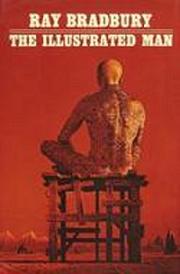

On spring mornings as a boy, he had leaned from his bedroom window into the snow-smelling air to see the sun sparkle on the last icicle of winter. As if a motion-picture projector had jammed a single clear memory-frame in his head, he found his mind focused ridiculously on a scene whipped out of childhood. The captain jerked his head to look at the ceiling. Any spark from that vast hearth burning out there beyond the callous hull of this ship-any small fire-breath that might seep through-would find winter slumbering here, like all the coldest hours of February.Īs the temperature rapidly increases, a crewman falls to the floor dead (a faulty space-suit). Through corridors of ice and milk-frost, ammoniated winter and storming snowflakes blew. In this ship were combined the coolly delicate and the coldly practical. The captain stared from the huge, dark-lensed port, and there indeed was the sun, and to go to that sun and touch it and steal part of it for ever away was his quiet and single idea. The Golden Apples of the Sun by Ray Bradbury ( The Golden Apples of the Sun, 1953 1) is one of his prose poem stories, I suppose you would call them-tales where there is no particular story, but where a vivid, poetic image is developed. This is an uncharacteristically bleak and reflective story for the time, and it shows a distinct lack of the sentimentality that spoiled some of Bradbury’s later work. He wonders if anyone will see him burn on re-entry-and the story ends with a short paragraph where a small boy and his mother wish upon a falling star. 131Įventually (spoiler), Hollis achieves a painful self-awareness about his (“terrible and empty”) life, and realises the only good he can do now is for his ashes to be added to the land below. There was a happy day, there a bad one, there an evil face, there a good one, the film burned to a cinder, the screen was dark. When life is over it is like a flicker of bright film, an instant on the screen, all of its prejudices and passions condensed and illumined for an instant on space, and before you could cry out. I put the black mark on you just before I was tossed out myself.”

“You wanted to get to the top all your life, Hollis. The abstraction had returned and he was a thing of dull concrete, forever falling nowhere. This is more reflectively existential than you would expect from a twenty-nine year old writer appearing in Thrilling Wonder Stories, and there is similar material earlier in the story, in a conversation Hollis has with Applegate:

And this knowledge began to pull Hollis apart, with a slow, quivering precision. He had only dreams of things he had wanted to do, while Lespere had memories of things done and accomplished. There were differences between memories and dreams. With a feeling of cold water gushing through his head and his body, Hollis knew he was right. “Because I got my thoughts I remember!” cried Lespere, far away, indignant, holding his memories to his chest with both hands.Īnd he was right. Where’s your life any better than mine, now? While it was happening, yes, but now? Now is what counts. “When anything’s over, it’s just like it never happened. It’s just as if it had never happened, isn’t it?” They are all in radio contact, but there is no chance they will be rescued: some of the men say nothing at all, some let the veneer of civilization slip away, and one of them just screams endlessly (until Hollis grabs hold of him and smashes his faceplate).ĭuring the various conversations that take place over the radio, Hollis becomes jealous of Lespere, who has been talking about his three wives on as many planets, how he once gambled away twenty thousand dollars when he was drunk, etc.:

The main character, Hollis, ends up drifting towards Earth, and re-entry. The men move in different directions, some towards the sun, others out to Pluto. Kaleidoscope by Ray Bradbury ( Thrilling Wonder Stories, October 1949) begins with an explosion on a spaceship which spills its crew into space “like a dozen wriggling silverfish”.


 0 kommentar(er)
0 kommentar(er)
